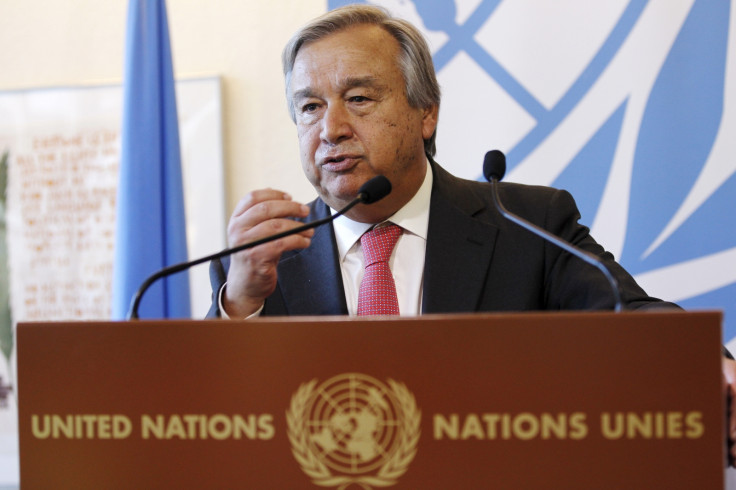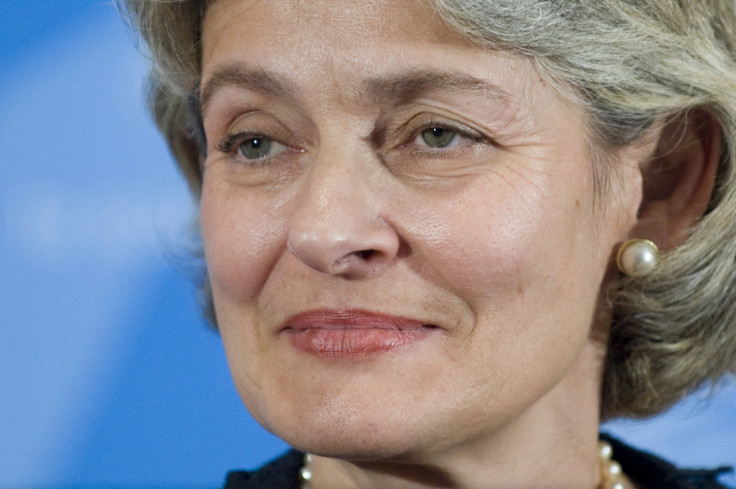Antonio Guterres tops 1st United Nations' straw poll for Secretary-General post
The former Portuguese PM was ahead of Danilo Turk of Slovenia and Irina Bokova of Bulgaria.

The former Portuguese prime minister Antonio Guterres has emerged as early leader to take over from Ban Ki-Moon as the next United Nations' Secretary-General after the organisation's Security Council held its first straw poll over whom they prefer.
Guterres, who is ex-head of the United Nations' refugee organisation, got 12 out of 15 votes of support, with no votes against, which showed none of the veto-holding P5 members opposed his candidacy.
In second was the former president of Slovenia, Danilo Turk who got 11 votes in favour and two against, according to Reuters. The head of Unesco, Irina Bokova ranked third, with nine positive and four negative votes – she is the only woman in the top five.
There had been much speculation about the preference among UN member states for a woman to take the helm as the world's top diplomat.
There is also a push for the candidate to come from eastern Europe, which would put Bokova, a former foreign minister of Bulgaria, as someone who can tick all the boxes. She was educated in Moscow as well which could mean that she gets the support of Russia, which is likely to be an important factor.
This week, she told the IBTimes UK that having a woman head of the UN would be important as it "changes the culture, it changes the stereotypes."
One unnamed diplomat, said according to the Wall Street Journal: "It's interesting that one candidate was the clear leader and did very well. We were expecting that everyone be in the middle ground, but it's quite a wide spread."

Former Serbian foreign minister Vuk Jeremić and the former Macedonian foreign minister Srgjan Kerim, tied for fourth. In June, Jeremić told the IBTimes UK in June of the need for less diplomacy and tougher talking at the UN.
The former New Zealand prime minister Helen Clark, who is in charge of the UN Development Programme was fifth.
Behind her were Slovak Foreign Minister Miroslav Lajcak, Argentinian Foreign Minister Susana Malcorra, and former UN climate chief Christiana Figueres of Costa Rica.
UN Charter
Council members were given a ballot for each candidate with the options of "encourage", "discourage" and "no opinion". The nominating states will be told of the results for their candidate, but overall results will not be made public.
The secret ballot ensures that it is not known which countries voted negatively.
The UN Charter says relatively little about how a Secretary-General is to be selected, although Article 97, says the candidate "shall be appointed by the General Assembly upon the recommendation of the Security Council."
Moldova's former foreign minister, Natalia Gherman, was in 10th place, followed by Montenegro Foreign Minister Igor Luksić and former Croatian Foreign Minister Vesna Pusic.
These straw polls continue until there is a majority candidate without a single veto from a permanent member of the Council. That name is then officially transferred to the Assembly, whose membership is likely to rubber stamp.
© Copyright IBTimes 2025. All rights reserved.






















